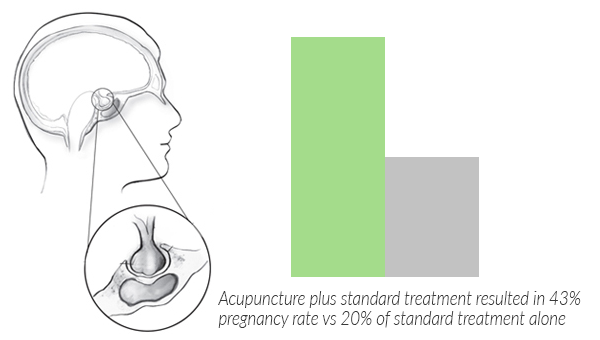NOW ONLINE CONSULTATION ALSO AVAILABLE “Dear friends, for online consultation/ Video consultation/ Tele consultation please contact 9937848498 & 8895243059."

Noncancerous tumor (adenoma) of the pituitary gland in your brain is called prolactinoma. It overproduces the hormone prolactin which is called as hyperprolactinaemia. The major effect of increased prolactin is a decrease in levels of some sex hormones — estrogen in women and testosterone in men. Prolactinoma can impair your vision, cause infertility and produce other effects, although it isn’t life-threatening.
Prolactinoma is one of several types of tumors that can develop in your pituitary gland.
Medications can often restore your prolactin level to normal and helping in treating prolactinoma. Surgery to remove the pituitary tumor also may be an option to treat prolactinoma.
Causes
These are tumors that develops in the pituitary gland. The cause of these tumors remains unknown.
A small bean-shaped gland situated at the base of your brain is called the pituitary gland. Despite its small size, the pituitary gland influences nearly every part of your body. Its hormones, such as prolactin, help regulate important functions such as growth, blood pressure and reproduction.
Prolactin overproduction can be due to medications, other types of pituitary tumors, an underactive thyroid gland, an injury to the chest, pregnancy and breast-feeding.
Symptoms
Increased level of prolactin in the blood can cause various symptoms. The symptoms differ slightly between men, women and children.
Symptoms in women may include:
• Irregularity of periods or no periods.
• Reduction in fertility.
• Reduction in sex drive.
• Leaking of milk from the breasts (known as galactorrhoea). The milk may leak out by itself, or may only show when the breast is squeezed. (Note: leakage of milk from the breasts is normal towards the end of pregnancy, with recent childbirth, if breast-feeding, and for some time after finishing breast-feeding.)
• Rapid growth of hair on the face or body.
Symptoms in men may include:
• Reduction in fertility.
• Erectile dysfunction (difficulty having an erection).
• Decreased libido (reduced sex drive).
• Enlargement of breast (called gynaecomastia).
• Leakage of milk from the breasts.
Symptoms in children and teenagers may include:
• Decreased growth.
• Delay in puberty.
Large prolactinomas may press on the brain or nearby nerves (the nearest nerves are the optic nerves which go to the eye). This may cause symptoms such as:
• Headache.
• Symptoms with vision – you may get reduced vision or double vision. The early changes can easily go unnoticed, because they affect the peripheral vision – that is, the edges of your vision to the extreme left and right. This means that you may see less of what is around you, but can still see well if you focus on something directly.
See a doctor urgently if you have headaches or reduced vision – you may need to have treatment promptly to relieve the pressure on the optic nerves. The prolactinoma, rarely, may press on the rest of the pituitary gland, stopping it from producing other hormones. This can cause symptoms such as tiredness, fainting, low blood pressure, low blood sugar or collapse. Also, rarely, there may be a leakage of the fluid that surrounds the brain and pituitary gland, felt as watery fluid leaking through the nose. These symptoms need urgent treatment.
